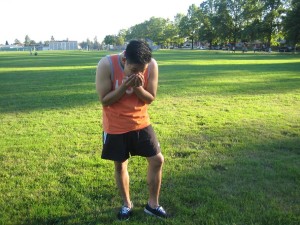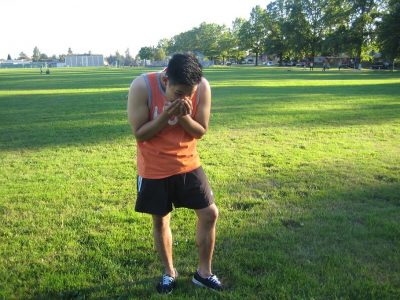Indoor or outdoor, year-round or seasonal allergies can potentially trigger constant coughing. Along with sneezing, runny nose, watery or itchy eyes and allergic cough can be annoying and disruptive. The coughing linked with allergies is often triggered by postnasal drip once mucus from the nose runs down the rear part of the throat.
It is important to note that allergic asthma is capable of triggering persistent coughing. When it comes to this type of asthma, the symptoms are instigated by exposure to allergens such as dust mites, pollen and mold spores.
How to control coughing due to allergies

- Schedule an appointment with a doctor if the individual starts to experience persistent coughing that might be linked with allergies. The doctor will perform a physical examination, ask questions about the medical history and can also recommend allergy testing to determine the potential substances that trigger the cough.
- The individual should take medications prescribed by the doctor. The treatment typically includes antihistamines to minimize the stuffiness. A decongestant can be given to dry up the mucus and even prescription or over-the-counter cough medications. If an individual has allergic asthma, asthma medications should be taken as prescribed.
- Follow up with the doctor if immunotherapy or allergy shots are recommended. Take note that this treatment works by reducing the sensitivity to potential allergy triggers and even minimize the symptoms over time, including persistent cough.
Measures to avoid allergy triggers to coughing
- The individual should avoid exposure to potential triggers. This technique is called as allergen avoidance. Whether the individual has a cough linked to seasonal allergies or allergic asthma, it is vital to manage the symptoms early.
- The individual should stay away from wood and cigarette smoke since these can irritate the airways and even trigger episodes of coughing. In addition, the individual should also avoid exposure to irritating, strong fumes particularly from fragrances, cleaning products or industrial chemicals.
- It is recommended to avoid the outdoors when the mold and pollen counts are high if an individual has seasonal allergies. Allergens should be kept out of the house by keeping the windows closed. It is vital to minimize time spent outdoor when the air quality is poor and during periods of elevated humidity or cold weather to help minimize allergy-related coughing.
- The house should be thoroughly cleaned to minimize the allergens inside the house. Vacuum and dust on a regular basis and always use a mask while cleaning to prevent breathing in the allergens. In addition, using an air purifier with a built-in high efficiency particulate air (HEPA) filter can help trap allergens as well as keeping the air in the house clean.
Considerations to bear in mind
Once an individual experiences dizziness, difficulty breathing, wheezing or lightheadedness, it is best to seek immediate medical care. If the individual continues to experience persistent coughing, it is vital to schedule an appointment with a doctor to determine if the treatment plan requires modifications.

